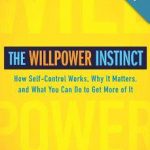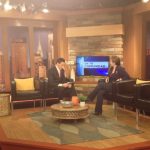The six-week old baby I held on September 11th, 2001 is now 12 years old. He has his own YouTube channel and takes out the garbage. Children are great markers of time, like growth charts on a kitchen wall. My kids, one a newborn and the other a toddler on that horrific day, are a physical reminder of how much time has passed.
Twelve years is a long time. And yet I can’t step into a crisp September Manhattan morning without getting that eerie feeling – we had this same impossibly blue sky that morning. It was bright and gorgeous, without a hint of humidity in the air, as early September days so often are in New York. It’s hard to look up and not remember that dissonance, flames shooting from the towers against a backdrop of the most glorious day imaginable.
My Facebook friends change their profile pictures to phantom towers and post inspirational quotes about good always triumphing in the end. Are we a culture intent on hanging on to our exquisite grief? Or is this just a thing we do, like mumbling empty words at the funerals of acquaintances?
I am torn about the cult of 9/11. It’s undeniable that the events of that day irrevocably changed the course of our nation’s history. It became the cover for many troubling actions, like a baseless war and open xenophobia. It shook our economy and set the stage for the Tea Party and its reactionary views. It exposed us to our vulnerability and mortality. After 9/11, we will never be the same.
But then I think about the psychological phenomenon called terror management theory. Studies have shown time and again that when we’re reminded of our own mortality, it triggers a panic response. It lives just below consciousness – just a feeling of uneasiness- but it leads us to do things that lessen our feelings of powerlessness. Things like authorize wars and scapegoat immigrants. (On a more personal level, it also makes us engage in “what the hell” behavior. One study showed that grocery shoppers asked to think about their own deaths just before shopping made longer shopping lists and were more likely to buy comfort foods like chocolate and cupcakes).
Fear is an agent of control and a trigger for panicky behavior. And what is the ritual reminder of 9/11 but a revisiting of the terror of that day and a reminder that death comes to us all, inevitably and often unexpectedly?
When my kids were little I shielded them from 9/11 coverage. They had no memory of the events. I didn’t want them growing up in a world where they believed people fly planes into buildings, especially because they fly so regularly themselves. Eventually a teacher told them about it in school, somewhere around the 4th grade. I was angry but resigned. There is no escaping 9/11.
But here’s the thing: they seemed unfazed by the story. Without the vivid memory of the day or of life before – a world in which the idea of a terrorist attack on the scale of 9/11 would be met with derision, or relegated to a blockbuster spy novel – they just didn’t get what the big deal was. It was a terrible event, of course, but no longer relevant. To them, it was just another bit of history.
It reminded me of the ambivalence I’ve always felt about the Kennedy assassination, an event that occurred years before my birth. Of course it was horrible to watch footage of the handsome young president gunned down. But it was a long-ago thing and the world had kept on turning. By the time I learned of the assassination, it was easy to assume my world had been changed by it not one bit. Growing up I always thought there were two kinds of people: those who remembered that November day in Dallas and those who didn’t. Now, I am on the other side of the divide. Clear September mornings remind me of something that my children will, thankfully, never remember.
It’s the way of the world and the passing of history. Events fade. New generations rethink the past, tell us maybe it wasn’t so bad or that they would have done things differently. Some of us old enough to remember vow to never forget. A few fetishize the pain. Cynical politicians exploit it, reducing it to a buzzword.
Twelve years on, who is to say what is the right way to react to the day? Today I mark less the anniversary of the events and more the quandary of what to do about the passing of time and its effect on the meaning of things. I hope to find the balance between remembering the lessons and forgetting the crime.
If what we focus on expands, I hope to learn to see the blue in the sky and feel the start of a chill in the air and no longer associate it with anything more than the beginning of fall, like I used to. I am prepared for the anger of my peers, the ones who say we should never forget, as if their hard memories are more valid than my own. But I suggest that the best way to honor the dead is to live completely, without fear and hate. I am tired of being told which of my actions and thoughts mean that the terrorists win. The terrorists really lose when we forget all about what they did. That’s what the clear blue sky means to me.






